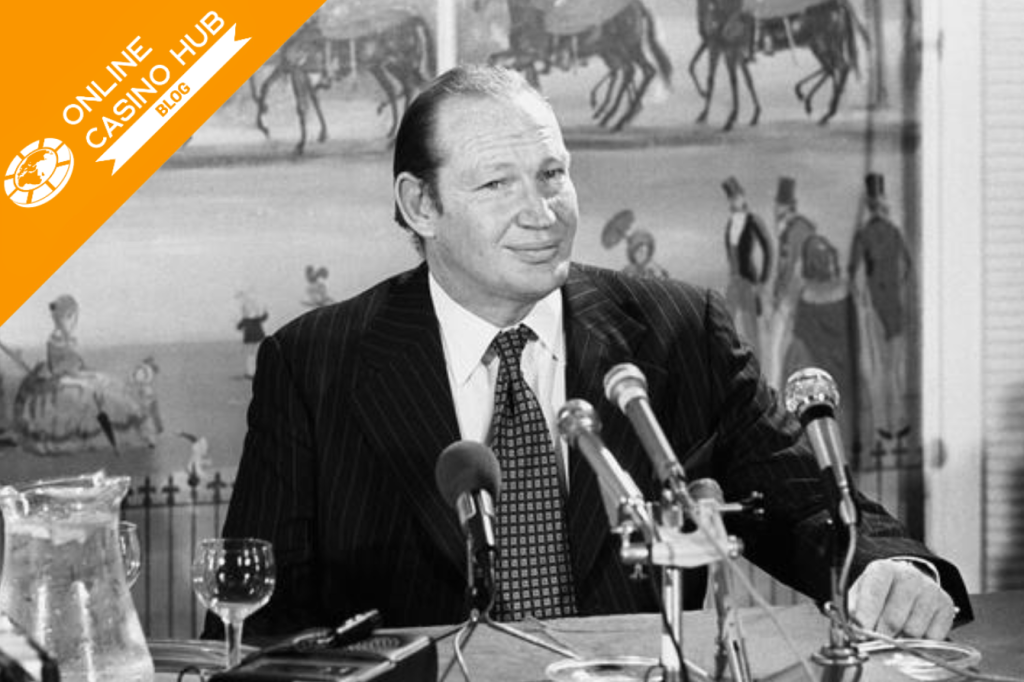Casino operators use the term “whale” to refer to players capable of winning or losing millions of dollars. Eighty percent of these whales are Asian, including the Sultan of Brunei, arms dealer Adnan Khashoggi, and tycoon Jimmy Goldsmith. The Whales are given a presidential hotel room for free, and offered all sorts of services for free, including the use of a private casino jet. The only money they have to have is for gambling. Most whales gamble away from tourists – in lounges set up, especially for them. Whales are eligible for instant credit of up to $5 million and in some cases up to $10 million.
A legendary personality in the world of gambling, Australian media mogul Kerry Packer is one of the most global players in the world. His capital is estimated by various estimates at between 3 and 6 billion Australian dollars. He is a passionate gambler who has no regrets about losing $20 million over three days of gambling in Las Vegas (one of the biggest losses in that city’s history). He easily bet £250,000 on all seven boxes when playing blackjack at Crockford Casino in London. And in three weeks he lost 13 million, breaking all records for losses in Great Britain. However, losses of this size are unlikely to deter Packer from continuing his beloved hobby.
The Birth of an Empire
The origin story of Packer’s empire is a legend for beggars who believe in getting rich. “According to a legend,” his grandfather found 10 shillings on a London street and decided to bet it at a horse race. He won and used the proceeds to buy his way to Australia. Arriving on the mainland, Packer’s grandfather got a job as a journalist and began building a media empire. Now the Publishing and Broadcasting group, founded by Kerry Packer’s ancestor, owns the country’s largest Crown Casino, a television station, and 60 percent of all periodicals in Australia, including the popular women’s magazine Belle and the Sydney’s Daily Telegraph, the most widely read newspaper in the country.
The future billionaire’s father, Frank Packer, continued the family business. In 1933, he began publishing specialized magazines, which were very popular. This allowed Kerry’s father to constantly expand the business. Packer Sr. had a difficult temper, being totally immersed in his work and paying little attention to his children, Kerry and Clyde. Later in 1979, in a radio interview, Kerry spoke about his upbringing: “I think my father and I had a lot of contradictions because we belong to different personality types.
Kerry’s childhood years were spent in loneliness and illness. At the age of five, he went to boarding school, and a year later he fell ill with polio. The disease was very difficult, Kerry spent nine months in bed with a respirator, which helped him breathe. In school, the future famous player returned only at age nine, very behind his peers. Luckily, thanks to a passion for sports, he almost fully recovered. “I was academically stupid. My method of survival in school was sports,” Packer said. Kerry graduated from high school when he was 19. After graduation, he went straight to work for his father. In 1974, Frank Packer died and Kerry inherited the business. Despite a difficult relationship, Kerry always admired his father and initially ran the business like him.
Wins and Losses
Kerry Packer later proved to be a stronger businessman and visionary than his father. So in 1987, he sold two television stations to businessman Alan Bond for a billion dollars. That was a lot more than they were actually worth. Three years later, he bought them back for a quarter of the price. Eventually, Kerry almost monopolized all the media in the country. In 1991, he tried to increase his empire by wanting to buy the Fairfax group of newspapers. But the Australian Parliament ruled that Kerry already had too much control over the media and banned the deal.
Packer’s other failed business proposal led to the biggest scandal in the history of the game of cricket. In 1977, Packer was refused by the Australian Cricket Board to sell the rights to televise the games. Then he signed more than 50 cricket players to participate in his own tournament. For a while, the game was split between the International Cricket Conference and Packer’s World Series Cricket. “I read a lot about Cengiz Khan: he wasn’t very attractive, but he was bloody and effective,” was probably what Packer said at the time.
Now, 25 years later, the same administrators who looked upon Packer as a subversive, unscrupulous businessman are proving that he did cricket a great service — raising the level of the game, and attracting the masses and capital.
Passion for Gaming.
Today, Kerry Packer’s main passion is polo, and he spends three months of his time and millions of dollars on players and horses on the game each year. In 1990, after suffering a heart attack while playing polo, Packer, 62, could be considered virtually dead for six minutes until paramedics resuscitated him. They say he loved life too much to part with it so easily — that’s what lifted him to his feet.
At the casino, Packer had a reputation as a strong player – after winning, he would not stay in the casino to give the gambling house a chance to win back the money. He once beat the MGM Grand in Las Vegas by $15 million – no sooner had the casino operators asked him to stay for a few more days than Packer was on his way home to Australia.
Packer is widely regarded as one of the smartest card players in the world. His friends say he has a photographic memory and the ability to calculate optimal strategies in his favorite games, blackjack, and baccarat.
The Gentleman and the Sassy Australian
Packer is known for his gentlemanly behavior in casinos. He once unconditionally gave actor George Hamilton £125,000 in gambling chips (Hamilton, playing blackjack, had two aces and wanted to split them, but didn’t have enough money). When Hamilton won with 21 points on both hands, he tried to thank Kerry. But Packer refused to accept anything but his loan.
There’s a story about a waitress who fed a billionaire. Late one night, Packer decided to get something to eat, but the hotel where he was staying refused to serve him. So he went to a nearby pub, where he was fed. He asked the waitress serving him why she was working at night and not at home with her children and husband. “I have a debt to pay,” said the woman. When Packer left, the girl was handed a bag containing a check for the amount she owed – $10,000.
There is a curiosity when, disturbed by the unusual attention to a stranger by pretty waitresses, Packer asked him what his persona was so noteworthy. “My fortune is $100 million,” replied the oil tycoon. “Really?” – Packer asked, trying to look impressed. “Yes, sir,” the oil man confirmed smugly. “I’ll tip you for it,” replied Packer. The oilman got up from the gambling table and left.
A hero of our times.
Kerry Packer is a player in business and a businessman in play. A novelist could hardly have found a better prototype to create the image of an adventurous novel protagonist. Packer’s personality will long attract attention with his ambiguous behavior and ambitious decision-making.

